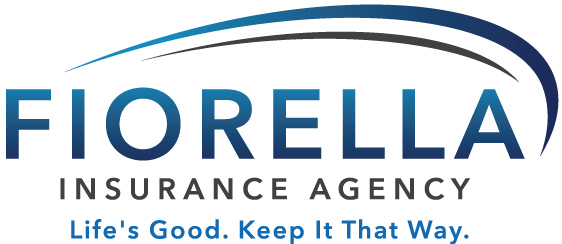Does health insurance cover oral surgery? This is a question that plagues many individuals, particularly those facing the prospect of dental procedures.
The confusion often stems from the intricate relationship between medical and dental insurance. It’s not always clear-cut where one ends and the other begins.
Figuring out whether your health insurance will cover the cost of an upcoming oral surgery can be confusing. However, it doesn’t have to be a complicated puzzle.
We’re here to help demystify how does health insurance cover oral surgery and how it works. Let’s explore the intricacies of health insurance coverage for oral surgeries.
Contact Fiorella Insurance today for your free health insurance quote.
Table of Contents
- Understanding Dental Insurance and Oral Surgery
- What Does Dental Insurance Cover?
- Pediatric Dental Coverage under the Affordable Care Act
- The Role of Medicare in Covering Oral Surgeries
- Decoding Your Dental Treatment Plan With Your Dentist and Insurer
- Preparing For The Unexpected In Dental Care
- FAQs in Relation to Does Health Insurance Cover Oral Surgery
- Conclusion
Understanding Dental Insurance and Oral Surgery
Dental insurance plans often categorize services into three main types: preventive, basic, and major. Preventive services usually cover routine dental care such as cleanings and exams. Basic services typically include treatments like fillings or root canals on front teeth.
-
Save
The category of major procedures encompasses more extensive work, including crowns, bridges, dentures, or oral surgery procedures. It’s crucial to note that while many dental insurance providers offer coverage for these under their plan offerings, the extent of this coverage varies significantly depending on individual policy terms along with specific treatment requirements.
A common misconception is that all oral surgeries are classified as major dental procedures in an insurance context. However, this isn’t always accurate since some surgical interventions may be categorized differently based on complexity or necessity for overall health maintenance.
What Does Dental Insurance Cover?
Dental insurance plans differ significantly, and it’s crucial to understand the details of your plan to know exactly what is covered. Generally, dental services are categorized into three major areas:- Routine Dental Care: This includes cleanings, check-ups, and X-rays.
- Basic Procedures: These encompass fillings, extractions (excluding wisdom teeth), root canals, and periodontal treatment.
- Major Services: Such as crowns, bridges, dentures, or oral surgery procedures performed by specialized oral surgeons.
Billing Medical Insurance for Oral Procedures
In instances where oral surgery is deemed medically necessary rather than purely aesthetic or preventative, such as trauma repair or cancer-related treatments, it might be possible to bill medical insurance instead of relying solely on your dental plan. This process involves submitting a claim detailing why the procedure was essential from a general health perspective to your medical insurer. This potential ability to bill medical insurance offers significant benefits by expanding available healthcare options beyond what’s traditionally included within standard dental coverage. However, careful navigation is required since not all insurers will accept claims without additional justification documentation demonstrating their necessity from broader health perspectives submitted by specialized oral surgeons who perform these kinds of treatments. To maximize the chances of successful reimbursement, you must communicate openly with both your dentist and insurer before any proposed treatment commence so everyone understands exactly which party covers what before any work begins.
Key Takeaway:
While dental insurance typically covers oral surgery under major procedures, the extent of coverage varies by policy and treatment requirements. Not all surgeries are classified as ‘major’, depending on the complexity or health necessity. If a procedure is medically necessary, it might be possible to bill medical insurance instead – but careful navigation and clear communication with your dentist and insurer are crucial.
Pediatric Dental Coverage under the Affordable Care Act
The ACA, commonly referred to as ObamaCare, revolutionized dental insurance. One notable feature is its provision for pediatric oral care, mandating that all health insurance plans sold on Health Insurance Exchanges or provided by Medicaid to certain newly eligible adults include services for children’s dental health. This mandate extends beyond routine check-ups and cleanings; it encompasses basic procedures like fillings or extractions and even complex treatments such as root canals and oral surgery.Comprehensive Pediatric Dental Benefits: More Than Just Routine Care
The ACA goes above and beyond in providing extensive benefits for your child’s dental needs. It covers not just preventive measures but also caters to more advanced requirements – from root canal therapy to required oral surgeries – thereby reducing out-of-pocket costs significantly.Understanding Your Child’s Oral Surgery Coverage Under The ACA
If you find yourself facing the prospect of your child requiring an invasive procedure such as wisdom teeth extraction or a treatment plan involving surgical procedures related to their overall medical health condition, understanding how these are covered under your current policy becomes paramount. Dental coverage varies based on individual plans, so before scheduling any major procedure, consult both with general dentists who specialize in pediatrics along with representatives from your insurance provider. A clear discussion about potential pre-treatment estimates helps avoid unexpected bills later while ensuring optimal outcomes for maintaining good childhood dental hygiene habits, which form foundation stones towards lifelong healthy smiles.Key Takeaway:
The Affordable Care Act (ACA) revolutionized dental insurance, mandating coverage for pediatric oral care beyond routine checkups. It includes basic procedures and complex treatments like oral surgery, significantly reducing out-of-pocket costs. Before scheduling major procedures, consult with dentists and your insurance provider to avoid unexpected bills.
Oral Surgery and Medical Insurance
The realm of oral surgery is often misunderstood when it comes to insurance coverage. Many people believe that dental procedures, including surgeries, are only covered by a specific dental insurance plan. However, some oral surgeries may be covered by general health insurance if deemed medically necessary, such as intricate tooth extractions or tissue biopsies for diagnosing conditions like oral cancer. This might include intricate tooth extractions or tissue biopsies, which can play an integral role in diagnosing conditions such as oral cancer.Looking for guidance on health insurance and oral surgery? Our comprehensive guide can assist you in understanding the intricacies. Explore how certain procedures may be eligible for medical coverage, not just dental. Gain valuable insights into navigating the complexities of health insurance when it comes to oral surgery. #HealthInsuranceInsights Click To Tweet
The Role of Medicare in Covering Oral Surgeries
Medicare, a federal health insurance program designed for individuals aged 65 and above, has its own set of rules when it comes to oral surgeries. Traditional Medicare does not usually cover routine dental care or most dental procedures such as cleanings, fillings, tooth extractions, or dentures. However, there are exceptions where Medicare Part A (Hospital Insurance) covers certain hospital-based dental services. This could include emergency or complicated surgical procedures that aren’t primarily focused on the teeth but are necessary for overall health.Medicare Advantage Plans and Dental Coverage
Different from Original Medicare is the concept of Medicare Advantage Plans (Part C). These plans provide your Original Medicare benefits through private companies approved by Medicare. Advantage programs can offer additional coverage, including vision, and hearing, along with potential oral surgery procedure coverage. The specifics vary greatly among these medical plans; some may include preventive care like exams and cleanings while others extend their reach to major services such as root canals and other types of oral surgeries performed by specialized general dentists. It’s crucial, therefore, to scrutinize all details before choosing an insurance plan based on its prospective dental benefits. If you require oral surgery covered under one of these plans, ensure you get pre-treatment estimates wherever possible. This will help avoid unexpected out-of-pocket costs after treatment completion. Always verify what portion of the cost will be covered by your provider before undergoing any treatments involving complex cases that might result in higher-than-average expenses.Exploring Medicare and oral surgery coverage? Know that traditional Medicare may not cover routine dental care, but Advantage Plans might. Always verify costs before treatment to avoid surprises. #HealthInsurance #OralSurgery Click to Tweet
Decoding Your Dental Treatment Plan With Your Dentist and Insurer
As you embark on your journey towards better dental health, it’s crucial to understand the roadmap: your treatment plan. This involves a tripartite dialogue between you, your dentist, and your insurance provider. Your oral surgeons specialize in creating comprehensive plans that detail proposed treatments performed, their necessity for overall dental care, and the steps involved in each procedure, including possible hospital stays if required for complex surgical procedures like wisdom teeth extraction or reconstructive surgeries.Pondering Over Hospital Stay for Oral Surgery?
Certain oral surgery procedures may necessitate post-operative recovery within a controlled environment of a hospital. The Mayo Clinic suggests that such scenarios include jaw reconstruction or major trauma repair, where intensive aftercare becomes vital, especially for patients with conditions like heart disease or diabetes.- Talk to both general dentists and specialists early on regarding this possibility, as not all medical plans cover the costs associated with routine care escalating into more serious interventions requiring extended periods of recuperation at hospitals.
- Contact your insurance provider in advance to avoid any unforeseen expenses related to potential hospital stays.
- A thorough understanding of the coverage details offered by different Medicare Advantage Plans helps manage expenses effectively when transitioning from basic preventive services to extensive restorative ones.
Discerning Insurance Coverage Details Before Commencing Treatments
- Analyze how much Medicare covers oral surgery under its Part A and B provisions.
- Determine whether any additional benefits are available through Medicare Advantage Plans, which often provide enhanced dental coverage compared to Original Medicare.
- If necessary, consider supplemental policies that offer a broader range of services covered beyond standard health insurance offerings.
Understand your treatment plan with your dentist and insurer. Some oral surgeries may require hospital stays, so be sure to check if it’s covered by your insurance. #OralHealth #InsuranceCoverage Click to Tweet
Preparing For The Unexpected In Dental Care
The realm of dental care, especially when it comes to oral surgery procedures, can sometimes present unexpected costs. Despite having a comprehensive insurance plan, there may be times when out-of-pocket expenses are unavoidable, thus making it essential to create an emergency fund for health care costs that your insurance doesn’t cover. A key strategy for preparing for these unforeseen expenditures is setting up an emergency fund specifically dedicated to health-related costs. This financial safety net can help manage any additional charges that your dental or medical insurance does not fully cover.Savings and Supplemental Coverage: A Two-Pronged Approach
An alternative way to handle unexpected dental bills involves exploring supplemental coverage options. These plans often provide extra benefits beyond those offered by standard plans such as Medicare Advantage or other general health insurance. These policies could include critical illness coverage or accident protection, which pays out a lump sum upon the diagnosis of specific illnesses or injuries, respectively. Such funds could then be utilized towards paying off unanticipated healthcare bills, including those related to oral surgeries like wisdom teeth extraction and more complex surgical procedures. Learn more about Medicare Supplements here.FSA and HSA Accounts: Tax-Advantaged Healthcare Savings
In addition to savings accounts, Health Savings Accounts (HSA) or Flexible Spending Accounts (FSA) offer useful tools for managing unplanned dental expenditures from routine care through major treatments performed by specialized oral surgeons. You can contribute pre-tax dollars towards eligible healthcare expenses – this includes everything from basic cleanings and check-ups right through complex treatment plans involving root canal therapy. Here’s some information on FSAs that you might find helpful. Beyond just saving money, HSAs even allow investments so your account balance grows over time, potentially offsetting future healthcare needs significantly. Find detailed insights into how HSAs work here.Key Takeaway: When it comes to dental care, don’t get caught off guard by unexpected costs. Set up a health-related emergency fund and consider supplemental coverage for extra benefits. Leverage tax-advantaged accounts like HSAs or FSAs to manage unplanned expenses.
FAQs in Relation to Does Health Insurance Cover Oral Surgery
Can jaw surgery be covered?
Jaw surgery can indeed be covered if it’s deemed medically necessary, such as in cases of trauma or congenital deformities. However, coverage varies based on individual health insurance policies.Is wisdom teeth removal a major surgery?
Wisdom teeth removal is considered a common oral surgical procedure rather than a major one. It involves extracting the third molars, which are often impacted or problematic.Does Tricare cover tooth extraction?
Yes, Tricare covers tooth extractions when they’re part of an approved dental treatment plan. The exact coverage may vary depending on your specific Tricare plan and situation.What are the effects of the Affordable Care Act on dental care: An integrative literature review?
The Affordable Care Act has expanded access to dental care by making pediatric dental services essential benefits and encouraging adults to obtain private dental coverage through Health Insurance Marketplaces.Conclusion
In conclusion, the question of “Does Health Insurance Cover Oral Surgery?” is multifaceted and depends on various factors. Medicare Part A may provide coverage for certain emergency or complicated dental procedures requiring hospital stays, while Medicare Advantage Plans offer extended coverage beyond Original Medicare. Private medical insurance providers may also consider oral surgeries as medical rather than routine dental care, particularly for procedures like wisdom teeth extraction or oral cancer treatment. To determine coverage for upcoming surgical procedures, it’s advisable to seek a pre-treatment estimate from your dentist or specialist, who will assess and outline a treatment plan billed to your medical insurance. Specific out-of-pocket costs will vary based on your policy’s covered benefits, and it’s important to note that even covered surgeries may still involve significant out-of-pocket expenses. In essence, understanding the coverage provided by both Medicare and private insurers for oral surgery aids in effective financial planning for maintaining optimal dental care while mitigating potential cost-related surprises post-procedure.Contact Fiorella Insurance today for your free health insurance quote.



